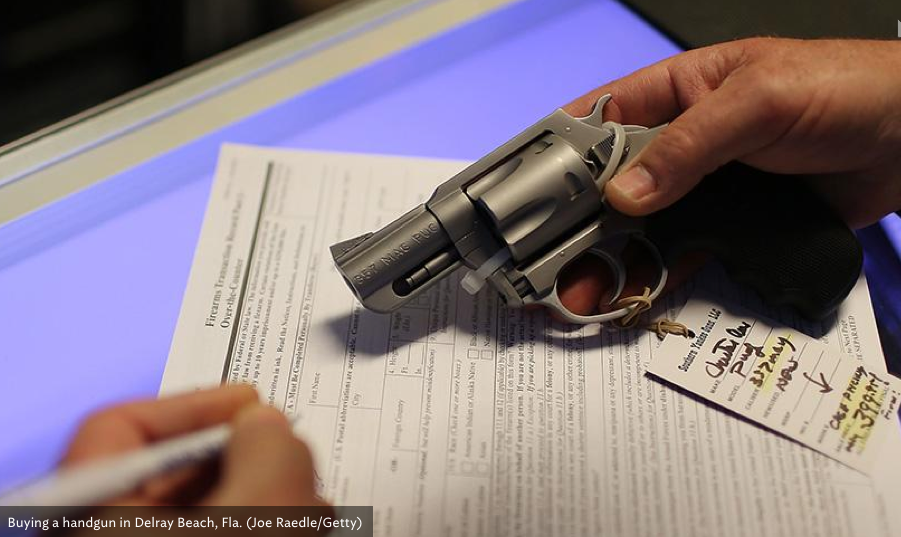The president opens the door for states to take action restricting guns.
In the twilight of his presidency, with his goals of gun control unfulfilled, President Obama has pivoted to the long game. During a teary-eyed press conference yesterday, Obama lamented that federal legislation “won’t happen during my presidency.” But with the stroke of a pen, he laid the groundwork for the states to do what Congress would not: limit the number of people who can own guns. Until gun-control advocates can gin up enough support in Congress, they have targeted state and local governments as the next frontier. At face value, the president’s executive actions are modest, and will have little practical effect. Their potency, however, lies with the power they give to progressive states to strengthen gun control nationally, without any action by Congress.
The Gun Control Act of 1968 prohibits a person from buying a firearm if he or she has been involuntarily committed or “adjudicated as a mental defective.” In subsequent federal regulations, the government added to the umbrella of “mental defective” a person who “lacks the mental capacity to contract or manage his own affairs,” regardless of whether the person poses a threat to anyone else.
To date, the National Instant Criminal Background Check System (NICS) “mental defective file” includes about 150,000 people. A report by the Congressional Research Services calculated that 99.3 percent of those on the list were referred by the Department of Veterans Affairs. Vets who could not manage their own financial affairs — who showed no propensity for harming anyone else — were legally barred from purchasing a firearm. It is highly doubtful that this arbitrary practice, which doesn’t even provide a hearing, would survive constitutional scrutiny under the Second Amendment or the Due Process Clause. Yet, in light of the president’s actions, this regime may be expanded beyond conceivable bounds.
Presently, the “mental defective file” is fairly small — almost exclusively financially unstable vets — because only the federal government could add names to the list. Before Tuesday, states were prohibited from reporting individuals because of the Health Insurance Portability and Accountability Act (HIPAA). A 2012 Government Accountability Office report found that “the absence of explicit State-level statutory authority to share mental health records was an impediment to making such records available to NICS.” However, with President Obama’s new executive action, these “unnecessary legal barriers” have been removed.
Source: Josh Blackman, http://www.nationalreview.com
 Listen Online
Listen Online Watch Online
Watch Online Find a Station in Your Area
Find a Station in Your Area









 Listen Now
Listen Now Watch Online
Watch Online
